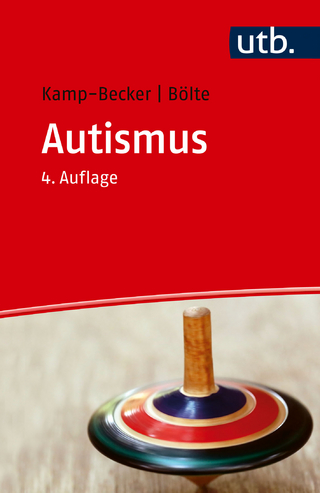
Managing Therapy-Interfering Behavior
American Psychological Association (Verlag)
978-1-4338-2097-7 (ISBN)
What happens when clients amp ndash and practitioners amp ndash get in the way of the therapy process? Therapy-interfering behavior (TIB) is a common concern. It can be intentional or unintentional, strategic or automatic, calculated or absent-minded, and sometimes it may come from the practitioner, or be mutually acted out with the client.
This highly approachable book presents strategies using a dialectical behavior therapy (DBT) framework, and addresses a large variety of common therapeutic challenges -- including problems with attendance, homework compliance, passive or aggressive behavior, and avoidance. Supported by empirical discussion, case studies, and examples of therapeutic interactions, Managing Therapy-Interfering Behavior: Strategies from Dialectical Behavior Therapy also takes the bold step of addressing how therapists can address their own therapy-interfering behavior. Topics such as therapist burnout and what to do when clients appear to be pushing therapeutic limits are covered.
The strategies presented apply to many types of patients, in many settings. With original research, detailed procedures, and concise syntheses of the large amount of research available, this book is a vital source for both seasoned DBT clinicians and those seeking to introduce elements of DBT in their clinical practice. With a foreword by Marsha M. Linehan.
Alexander L. Chapman, PhD, RPsych, is a professor and coordinator of the clinical science area in the Department of Psychology at Simon Fraser University (SFU), a registered psychologist, and the president of the Dialectical Behavior Therapy (DBT) Centre of Vancouver. Dr. Chapman received his BA ( 99 ) from the University of British Columbia and his MS (2 ) and PhD (2 3) in clinical psychology from Idaho State University, following an internship at Duke University Medical Center. He completed a 2-year postdoctoral fellowship with Dr. Marsha Linehan (founder of DBT) at the University of Washington. Dr. Chapman directs the Personality and Emotion Research Laboratory at SFU, where he studies the role of emotion regulation in borderline personality disorder (BPD), self-harm, impulsivity, and other behavioral problems. He has published numerous scientific articles and chapters on these and other topics and has given many scientific conference presentations on his research. Dr. Chapman also is on the editorial board for Behavior Therapy Personality Disorder: Theory, Research, and Treatment and Journal of Personality Disorders. He was recently designated Distinguished Reviewer by the editorial board of Behavior Therapy. He is a DBT trainer and consultant with Behavioral Tech, LLC, and is certified in cognitive behavior therapy by the Canadian Association of Cognitive and Behavioural Therapies. Dr. Chapman regularly gives local, national, and international workshops and invited talks on DBT and the treatment of BPD has consulted with and trained clinicians in Canada, the United States, and the United Kingdom and trains and supervises clinical psychology students. He has received the Young Investigator's Award of the National Education Alliance for Borderline Personality Disorder (2 7), the Canadian Psychological Association's Early Career Scientist Practitioner Award (2 ), and an 8-year Career Investigator Award from the Michael Smith Foundation for Health Research. He has coauthored eight books (five published, three in press). Three of his self-help books have won the Association for Behavioral and Cognitive Therapies Self-Help Book Seal of Merit award. In addition, Dr. Chapman is an assistant instructor at his local martial arts studio and has been practicing Zen and mindfulness meditation for several years. He enjoys cooking, hiking, skiing, cycling, and spending time with his wonderful wife and two young sons. M. Zachary Rosenthal, PhD, is an associate professor with a joint appointment in the Department of Psychiatry and Behavioral Sciences at Duke University Medical Center and the Department of Psychology and Neuroscience at Duke University. He is the vice chair for clinical services within the Department of Psychiatry and Behavioral Sciences and the director of the Duke Cognitive Behavioral Research and Treatment Program. He is a clinician, educator, and researcher.
Foreword
Marsha M. Linehan
Acknowledgments
Chapter : Why People Get in Their Own Way
Chapter 2: Core Dialectical Behavior Therapy Principles Applied to Therapy-Interfering Behavior
Chapter 3: Core Dialectical Behavior Therapy Strategies for Managing Therapy-Interfering Behavior
Chapter 4: Setting the Stage: Orienting and Observing Limits
Chapter 5: Enhancing Therapy Attendance
Chapter : Enhancing Psychotherapy Homework Compliance
Chapter 7: Effectively Responding to Anger
Chapter 8: How to Confront Therapy-Interfering Behavior
Chapter 9: Helping Clients Overcome Avoidance
Chapter : Responding to Sexually Related Behavior
Chapter : Ending Therapy Effectively
Chapter 2: When the Therapist Gets in the Way
References
Index
About the Authors
| Verlagsort | Washington DC |
|---|---|
| Sprache | englisch |
| Maße | 178 x 254 mm |
| Themenwelt | Geisteswissenschaften ► Psychologie ► Allgemeines / Lexika |
| Medizin / Pharmazie ► Medizinische Fachgebiete ► Psychiatrie / Psychotherapie | |
| ISBN-10 | 1-4338-2097-8 / 1433820978 |
| ISBN-13 | 978-1-4338-2097-7 / 9781433820977 |
| Zustand | Neuware |
| Informationen gemäß Produktsicherheitsverordnung (GPSR) | |
| Haben Sie eine Frage zum Produkt? |
aus dem Bereich


